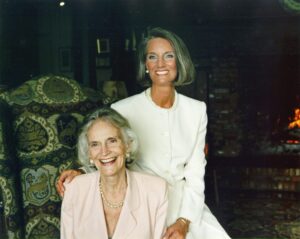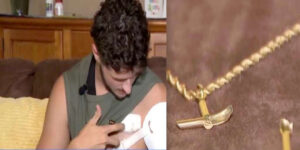Why Billy Graham’s Daughter Is Celebrating Evangelical Feminism
“… For I am not ashamed, because I know whom I have believed …” (2 Timothy 1:12).
March 8th was International Women’s Day. I’m using it as an opportunity to think about what it means to be an evangelical woman in today’s world.
An evangelical woman is one who believes in the evangel—the gospel—the Good News that God so loves the world that He gave His only Son, Jesus Christ, to die on the cross to make atonement for sin. And that anyone and everyone, anywhere and everywhere, who trusts Jesus Christ to be their Savior will not perish in an empty, meaningless existence, then go to hell when they die, but will be forgiven of their sin, be reconciled to God, and have eternal life—which is a personal relationship with God now, and a heavenly home when they die.
The term, “evangelical feminism,” was a new one to me when I was asked to write about it several years ago. I wasn’t sure what it meant. So I have taken the liberty of defining it with more clarity than just an evangelical woman. An evangelical feminist is a woman who is a strong, bold, free-spirited leader inside and outside of her home, unashamed of her faith in God, His Word, His Son, and His gospel. With that definition, I would identify myself as an evangelical feminist.
I was raised in a strong evangelical home where women were respected, honored, and who held significant positions of leadership. My maternal great-great-aunt ran off an invading Yankee soldier, running him through with her hat-pin. While my maternal grandmother bore five children, buried one, and managed a missionary’s home in Tsingkiangpu, China, she was also a nurse and supervised a women’s medical clinic. My paternal grandmother not only raised four children, but taught a weekly Bible class, and helped my grandfather run a large, successful dairy farm. My mother-in-law was not only the official first Lady of several churches as the wife of a pastor, she raised four incredibly successful sons while at the same time keeping a full time job on 5th Avenue in New York City as a dental hygienist.
 I wonder if the term, “evangelical feminist,” would describe my own mother. Her strong character and faith are legendary. I am convinced there would not be a Billy Graham as we have known him, if there hadn’t been a Ruth Graham beside him. She never felt staying home to raise five children a demeaning burden. Instead, she considered it the highest privilege she could be given. She was an artist, a pianist, an intellect who read everything available, and an authority on early American log cabins. She cared for sick neighbors, stayed in touch with missionary friends, helped my father write his many best-selling books, supervised the running of a large, unique household so that my father was free to give full attention to his preaching, learned to ride a Harley-Davidson and to hang-glide. She was filled with an exuberant zest for life. When the last child left home, she stepped out to speak, and published her own poetry and writings. William F. Buckley, Jr., once related to me that she had been the sparkle at a recent White House state dinner he had attended, easily carrying the conversation at the President’s table.
I wonder if the term, “evangelical feminist,” would describe my own mother. Her strong character and faith are legendary. I am convinced there would not be a Billy Graham as we have known him, if there hadn’t been a Ruth Graham beside him. She never felt staying home to raise five children a demeaning burden. Instead, she considered it the highest privilege she could be given. She was an artist, a pianist, an intellect who read everything available, and an authority on early American log cabins. She cared for sick neighbors, stayed in touch with missionary friends, helped my father write his many best-selling books, supervised the running of a large, unique household so that my father was free to give full attention to his preaching, learned to ride a Harley-Davidson and to hang-glide. She was filled with an exuberant zest for life. When the last child left home, she stepped out to speak, and published her own poetry and writings. William F. Buckley, Jr., once related to me that she had been the sparkle at a recent White House state dinner he had attended, easily carrying the conversation at the President’s table.
Evangelical feminists today, if I am defining the term rightly, are rooted in the women of the Bible, beginning with Eve, who was given equal dominion over the earth with Adam; Sarah, whose faith, along with that of her husband, Abraham, was extraordinary, enabling her to bear a son at 90 years of age—a son who became one of the patriarchs of the Jewish people; Hagar, a single mother who had a personal relationship with God, and raised her son, Ishmael, to become the father of many nations; Rahab, whose bold, courageous act of faith saved her entire household from God’s judgment; Ruth, who committed herself to support her mother-in-law, left everything behind to begin a new life and became the great-great grandmother of King David; Deborah, who was so bold in battle, the generals would not face the enemy without her; Jael, who single-handedly defeated an enemy none of the generals had been able to overcome; and on it goes until we come to the Virgin Mary, singled out by God for her purity, integrity, piety, and humility to be the mother of our Lord Jesus Christ … and Mary Magdalene, a woman with a sinful past, who was commissioned by the risen Lord Jesus Christ Himself to be the first evangelist to the world.
So if “evangelical feminism” means women who know what they believe, who are strong in their convictions, who are bold in their actions, who are courageous to stand up and speak out for Jesus Christ while being godly wives and mothers, then I celebrate them today. And I would be honored to be counted in their number.
Anne Graham Lotz, founder of AnGeL ministries, has proclaimed God’s Word worldwide for more than 30 years. Her newest book, Wounded by God’s People, is available at AnneGrahamLotz.com




























































